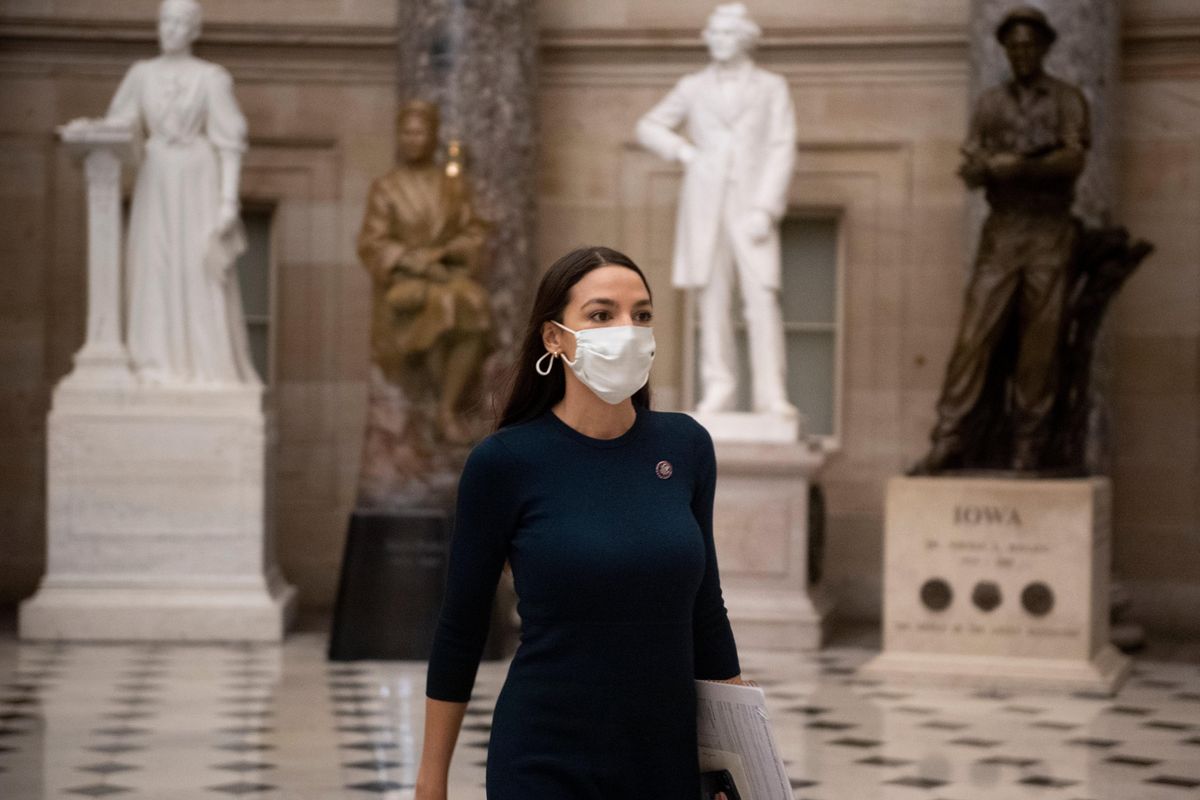Alexandria Ocasio-Cortez shared her trauma - we need to hear her
Criticisms of AOC discussing her fears during the January 6 insurrection show that we need to be better at listening to survivors
US Representative Alexandria Ocasio-Cortez (D-NY) walks to the House floor on Capitol Hill February 4, 2021, in Washington, DC
I'm Liz. I work with books and am writing my own (stay tuned). Hobbies include: casual legal research, behavioral economics, moral psychology, and dismantling the patriarchy (and other useless constructs).
Congresswoman Alexandra Ocasio-Cortez is no stranger to Twitter feuds. Most recently, she has been embroiled in arguments with Ted Cruz and other Republican lawmakers, accusing them of having her murdered when they promoted rioters to attack the U.S. Capitol on January 6.
On February 1, AOC livestreamed a detailed and emotional account of her experience during the attack. She also shared publicly she is a survivor of sexual assault. In response to the livestream, AOC received overwhelming support from her followers, but has also been accused of weaponizing her trauma. Critics who sought to discredit AOC's account, began using the hashtag #AOClied.
Even South Carolina Rep. Nancy Mace accused AOC of overdramatizing and exaggerating her experience, sparking yet another Twitter battle between the two.
For many of us who watched the events unfold on January 6, with varying degrees of fear and trepidation, it isn't difficult to imagine that the representatives who were preset that day were terrified. In fact, Mace herself reported that she barricaded herself inside her office, fearing she might be targeted. Whether you personally found the insurrection terrifying or not, I don't think it's possible to be too concerned with the event, which has clearly demonstrated that some factions in America are willing to openly use violence to further their ideologies.
That's a problem and it needs to be addressed. It's baffling to see people downplay the event, and suggest AOC and others should just "get over it." In her livestream, AOC pointed out these tactics are the same tactics used by abusers.
Regardless of intentions, critics of AOC are showing they have not heard her. Why is it so difficult to hear others without qualifying or explaining away their experience? Does seeing them as human make it difficult to demonize their political ideologies? I am concerned by the instinct so many of us have to delegitimize other's suffering, particularly when we perceive them as coming from a different "team."
I'm reminded of something that my grandad used to tell me: "If you don't have anything nice to say, don't say anything at all." Now, while I might not agree that there is never a time to say something that is "not nice," I have to wonder what critics hope to accomplish through their negativity?
Maybe they aren't trying to accomplish anything.
Maybe their tweets aren't thought out. Maybe they're reactions driven by instinct to protect ourselves or our teams. Maybe they're tactics to avoid consequences as AOC suggests. No matter the reason, I think we deserve better from our representatives, and I think we should require better from ourselves.
If we can't learn to listen when other human beings tell us about their pain, I'm afraid we won't get very far in building bridges between different ideological factions. While it's important to disagree with those whose ideas we believe are harmful, we need to level up the quality of discourse on the internet.
I propose an alternative to grandad's rule: If you didn't listen, don't respond.
Have you got something to say about this subject? Submit a post here and start the conversation.
- Alexandria Ocasio-Cortez Defeats Joseph Crowley in Major ... ›
- Inside Rep. Alexandria Ocasio-Cortez's Unlikely Rise | Time ›
- Alexandria Ocasio-Cortez | US news | The Guardian ›
- Alexandria Ocasio-Cortez on Biden's Win, House Losses, and ... ›
- Representative Alexandria Ocasio-Cortez | Representing the 14th ... ›


